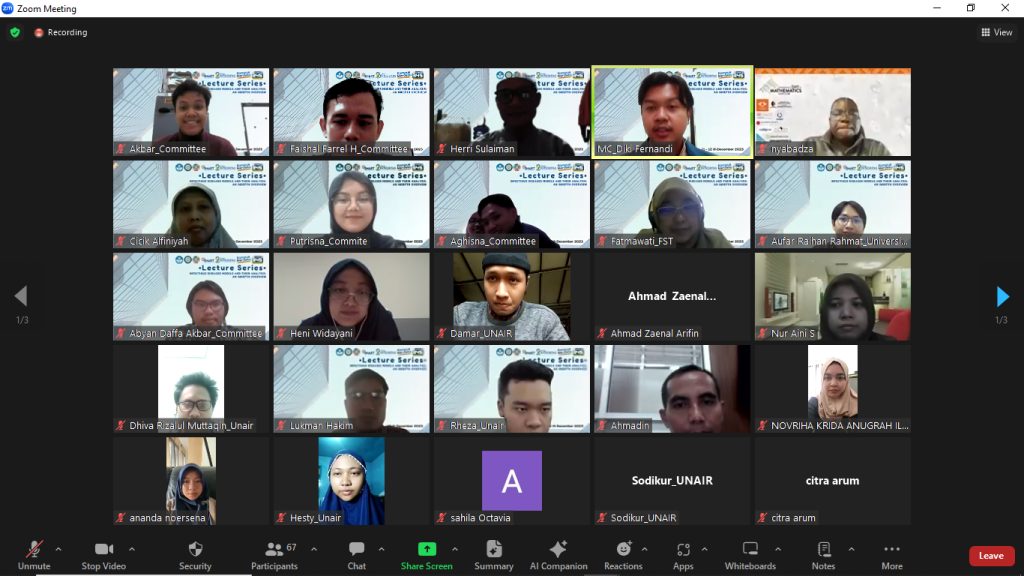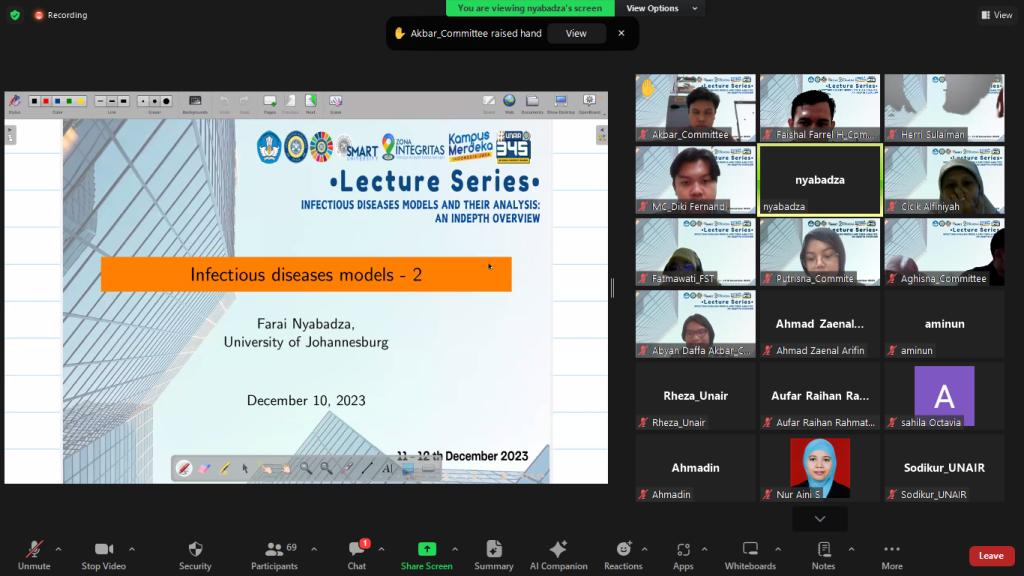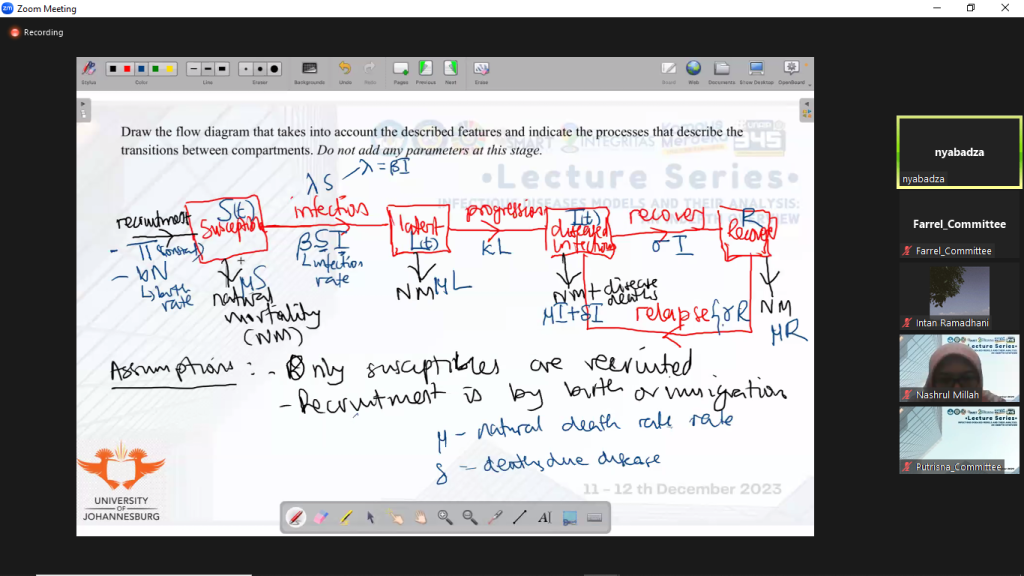The Mathematics Study Program at the Faculty of Science and Technology (FST), UNAIR, organized a distinguished guest lecture series on Monday and Tuesday, December 11-12, 2023, featuring Prof. Farai Nyabadza, Ph.D., from the Department of Mathematics and Applied Mathematics at the Faculty of Science, University of Johannesburg, South Africa, as the esteemed speaker. This online event, facilitated through the Zoom platform, attracted an audience of approximately 70 participants in each session. The series comprised two topics presented by Prof. Nyabadza on each day: “Infectious Disease Models part 1 and 2” on the first day and “Designing and Analysis of a TB Model” on the second day.

During the initial day, Prof. Nyabadza explored the essential aspects of forming a mathematical model. He underscored the importance of commencing with simple elements that accurately represent real-world phenomena. The process of developing a model, often iterative, involves repeated observations to ensure its efficacy in representing actual conditions. Prof. Nyabadza emphasized the necessity for transdisciplinary and interdisciplinary collaboration in research, as practitioners may incline towards detailed involvement in all aspects, while mathematicians might prioritize abstraction, making assumptions and disregarding details to form a concise model. Successful collaboration between both parties is deemed crucial for research success.

On the subsequent day, Prof. Nyabadza delved further into the practical stages of building a model, using a Tuberculosis spread model as an illustrative example. The initial model encompassed susceptible, latent, infectious, and recovery populations. Subsequent developments involved dividing the latent population into fast and slow latent segments, both contributing to increased infection. Further complexity was introduced by incorporating the possibility of transitioning from slow latent to fast latent populations. Prof. Nyabadza exemplified that the creation of mathematical models can occur in stages through continuous research, resulting in models that progressively become more complex and representative of real-world conditions.

This guest lecture series aspires to contribute to the enhancement of education quality in alignment with the goals of Sustainable Development Goals (SDGs) number four. Additionally, the activity aims to strengthen global partnerships through collaboration with international counterparts.
